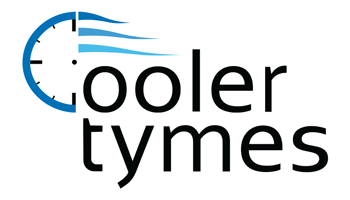
To combat increasing energy expenses and embrace sustainability, many homeowners are looking for ways to enjoy the same standards of comfort while reducing utility bills. Included in the Inflation Reduction Act, federal tax credits are available for high efficiency HVAC equipment. These credits offer big savings, provided that homeowners work with qualifying equipment and submit the appropriate form.
If you’re worried about a long, complicated process, we’re offering to help! Cooler Tymes LLC hopes this guide will give you everything you need to earn these HVAC tax credits in 2024. Here’s what you should know.
Understanding the HVAC Tax Credits
These valuable tax credits for upgrading your home to be more energy-efficient are just one goal of the recent Inflation Reduction Act. With the higher cost of energy making an impact, helping more homeowners upgrade their equipment is always beneficial. The key provision of these credits is to reduce the cost of installing high efficiency upgrades. Of particular importance are the Residential Clean Energy Credit and the Energy Efficiency Home Improvement Credit.
But keep in mind, to earn any of the credits, you’ll have to complete IRS Form 5695. Additionally, this form needs to be submitted during the same tax year your upgrades were installed, not purchased.
Energy Efficiency Home Improvement Credit
Through 2032, the Energy Efficiency Home Improvement Credit provides up to $3,200 each year for energy-efficient home upgrades. This amounts to 30% of the total project’s cost. Keep in mind that in order to be eligible for the maximum amount, it involves making different investments. For example, you’ll get up to $2,000 for a new, high-efficiency heat pump. This can be paired with an additional $1,200 in credits for more projects in the tax year.
While new heat pump installation projects are a key target for this incentive, high-efficiency furnaces, air conditioners, boilers, and other HVAC systems are still eligible for this tax credit. You’ll need to confirm that your choice’s energy efficiency rating is high enough for eligibility.
Residential Clean Energy Credit
The Residential Clean Energy Credit offers 30% savings on a wide range of residential clean energy efficiency projects. Eligibility is only extended to homeowners seeking to update existing or newly constructed homes. While the Home Improvement Credit highlights utilities and HVAC systems, this credit is more about renewable energy sources like solar and wind energy.
Some key details of this tax credit include requiring the installation project to be finished between 2022 and 2032. But at the same time, homeowners can carry forward excess credit to offset future tax obligations. This is a great way to spread out costs and keep them more manageable.
Additional Qualifications for Energy Tax Credits
Because HVAC systems are one of the biggest expenses on your energy bill, these tax credits can guide you to the most energy-efficient options. But home energy efficiency can be improved in many other ways. Apart from the previously listed HVAC upgrades, {you could also choose|other eligible items include|you also have access to:
- Heat pump water heaters
- Electrical panel upgrades
- New electrical wiring
- Insulation, air sealing and ventilation enhancements
- High-efficiency electric stoves, cooktops, ranges or ovens
- Heat pump clothes dryers
- Water boilers
Like the HVAC systems, you’ll need to confirm that your chosen products meet the required energy efficiency ratings.
Maximizing Your 2024 HVAC Tax Credits: Top 3 Tips
While any one of those upgrades can enhance your home's energy performance, a little planning will ensure the best chance at more long-term benefits. Get the most from your HVAC tax credits with these reminders:
- Conduct a home energy audit to identify impactful upgrades. Trust experienced HVAC companies to pinpoint essential products and services.
- Enhance your home's envelope by addressing inefficient windows and doors.
- Explore potential rebates from utility companies for clean energy upgrades. Renewable sources like solar, wind, and geothermal contribute to community power grid sustainability.
- Don’t forget financing options from local service companies, which can help reduce costs even more.
Cooler Tymes LLC Can Help You Secure HVAC Credits for 2024
Partner with local HVAC professionals like Cooler Tymes LLC for eligible serves like energy assessments or new installation. Our helpful installers know how to provide all you need for a more energy-efficient home.
